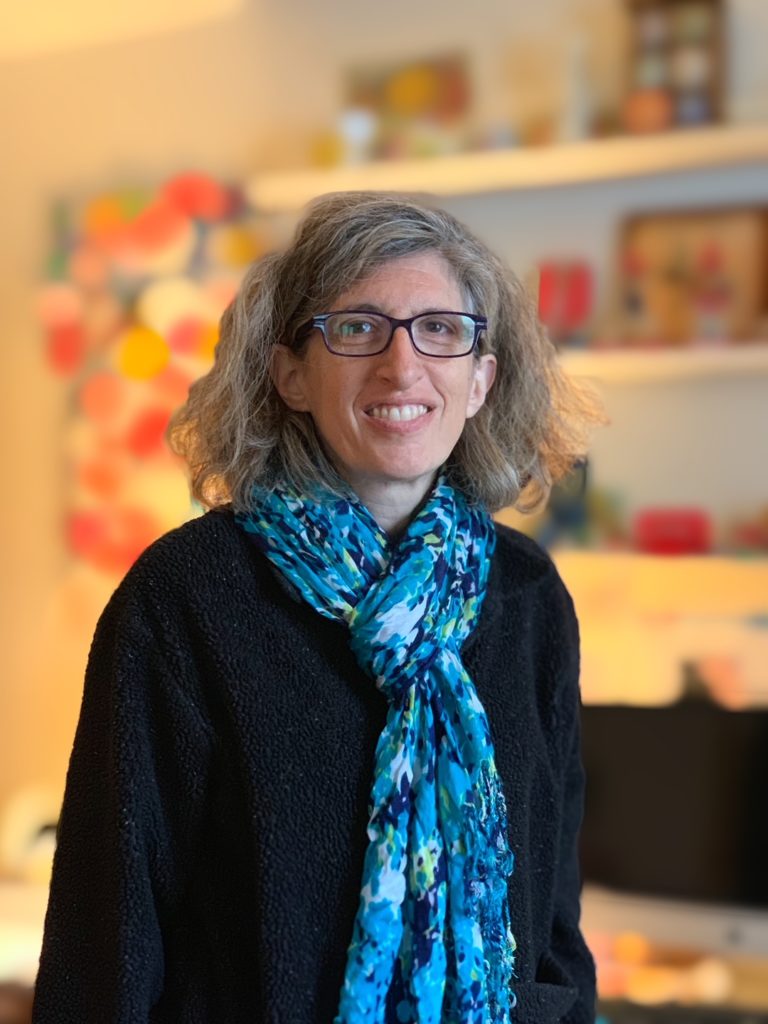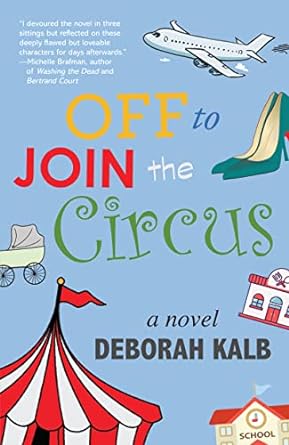
Twice a year on my blog, I curate quotes, links, and book information drawn from my regular X (formerly Twitter) posts about Deborah Kalb’s book/author Q&As. This summer, my post noted that Deborah had recently published her first novel for adults, Off to Join the Circus.
Deborah and I have been friends since we were colleagues years ago at USA TODAY/Gannett. In 2013, I conducted a brief interview with her for my blog. And I was fortunate to have her do author Q&As with me for both my first and second books.
I’m honored that Deborah has answered my new questions about her eclectic career consisting of writing in several different genres, editing books, conducting multiple author Q&As each week, podcasting, and how it all fits together.

From a practical, day-to-day standpoint, what differences have you found in researching, writing, marketing/promoting your books in different genres: nonfiction as well as fiction for children and most recently, adult fiction?
Thanks so much, Bruce!
Starting with researching, my most recent novel—my first for adults—Off to Join the Circus, was the easiest of all to research. It takes place in the present time, and the family lives in suburban Washington, D.C. (as I do), and one of the few things I had to find out about was the life of a chef, because one of my secondary characters is a chef. Otherwise, I could let my imagination run wild!
For my children’s books, I had to do a huge amount of research. The books involve modern-day kids who travel back in time and meet the early presidents, so I needed to find out as much as I could about those presidents, their families, the issues they were dealing with, the places they lived, etc. It was a lot of fun—I was a history major many years ago, so I love delving into the past.
My books for adults include a book I co-wrote with my father, Marvin Kalb, called Haunting Legacy. It focused on the legacy of the Vietnam War as it affected postwar presidents (do you see a trend here?). We spent six years researching and writing the book, so needless to say we tried to be incredibly accurate. I’ve also written, updated, or edited various reference books for Congressional Quarterly (involving Congress, politics, and, yes, presidents) and accuracy was paramount with those volumes as well!
Turning to the writing, when it involves fiction, I tend to have a very similar voice—close third person—when I’m writing, whether it’s for kids or adults. The one big difference is that I experimented with telling the story in Off to Join the Circus from multiple perspectives, which I really enjoyed. Writing nonfiction is an entirely different process because it involves so much research. It’s more difficult to just sit down and write without having to look things up all the time—although that happened with the kids’ books as well.
For promoting the books, it’s been quite different depending on the type of book. For Haunting Legacy, my father and I spoke to a variety of organizations—universities, military-related groups, journalism organizations, and more. For the kids’ books, most of the attention was on school visits and library talks. Off to Join the Circus has involved a variety of forums, including bookstores, podcasts, and blogs like yours! I’m eager to participate in book clubs, so if anyone who’s reading this has a book club that reads humorous literary fiction, please consider Off to Join the Circus!
You balance a number of editorial-related activities, including your new podcast. Do you have a particular approach to time management, perhaps including notebooks or computer files for creative ideas and/or potential/actual projects?
I would welcome any suggestions for time management! J Often, one thing—generally the Book Q&As blog—seems to swallow up all my time, leaving me late at night wondering where the day went! I do have computer files where I list ideas relating to various book projects, and try to update them frequently. I have an Excel spreadsheet focused on my author Q&As, and I update that throughout the day; in addition I plan the Q&As in a notebook, so I have a duplicate source of information. For the podcast, my wonderful friend Mary Grace McGeehan, my co-host, keeps me organized.
For the most part, I think my background in journalism has helped me stick to deadlines for the most part, although sometimes life events intervene.
Does your work on the daily author Q&As inform your own work as an author, and if so, in what ways?
That’s a great question, Bruce! I’ve been thinking about that a lot lately. I’ve been doing these Q&As with authors for more than a decade now, asking them about their books, their writing process, and much more. When I look at my own writing, one thing that struck me is how much I’ve learned from the authors I’ve interviewed about plotting and structuring a novel. When I started writing fiction, I had a vague idea about how to create characters and how to write dialogue. But I had no clue about how to structure a coherent plot. I look back at unpublished fiction projects over many decades and I think—as I mentioned earlier—that my writing style and tone haven’t changed all that much. But I’ve gradually become more comfortable with plotting, pacing, and structure, and much of that is thanks to the interviews I’ve been doing.
Thank you so much, Bruce—I really appreciate your thoughtful questions!
